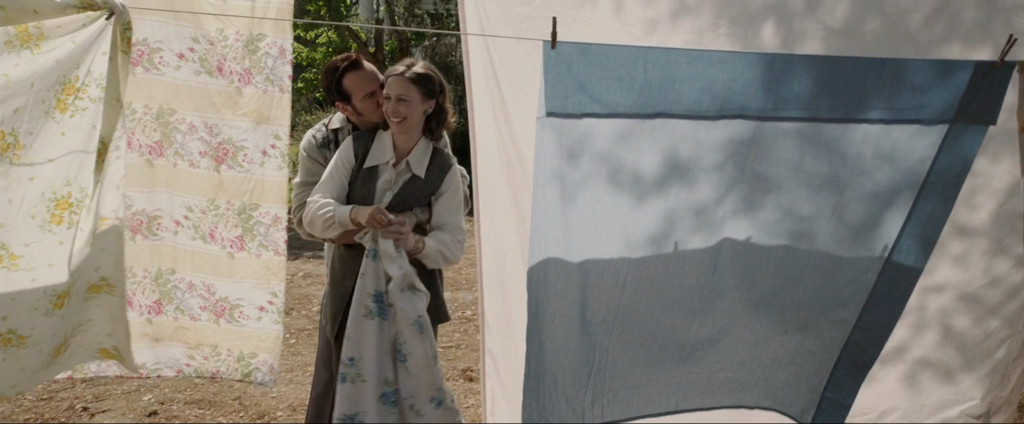Halloween, carnival, and other dress up holidays give people a break from being themselves, it’s said. For one night a harried marketing director can inhabit the being of a simple milkmaid, your average parent can be a favorite superhero, a school kid can be a Nobel winning scientist or songwriter. But for every other person escaping into their costume, I’m willing to bet there’s one who’s reveling in the rare chance to dress as themself. Back when there were no consequences to my appearance, I used to take elaborate care with my dress. I modified thrifted clothes and eventually moved up to tweaking patterns and sewing whole garments. Some Tuesdays in March you wake up a rainbow princess bag lady. On a wet November day you may be the ghost of a drowned snail.
Then I graduated from college #1, a haven for academically driven weirdos where comparatively there was nothing outre in my sartorial tastes, and had to get a real full time job. There went dressing as myself.
Some might regard this whole issue as trivial. What’s the big deal about clothes? Suck in your entitled child and at least act like an adult. Well, yes, that’s how the world works. But why? If clothes are so trivial, why the fuss over a little mould breaking? As Miya and Danielle point out in their article “Embrace Your Inner Slutty Pumpkin,” costumes are empowering. And quite many people use them to communicate, even within the paradigm of normal dress. A cat print romper says it’s a fun day. An outfit from the L.L. Bean catalogue says I’m medium wealthy and certainly won’t let you or anyone else see me bothered. A yellow sundress could be a covert Evangelion tribute. Certain hats say I’m a serious young woman versus a mysterious one.
Not only is there a push to socially normalize, but there’s significant pressure to set personal norms If you often wear graphic tees and jeans, a Yves St. Laurent structured blouse will draw comment – positive, bewildered, and snide. Wearing your favorite Cascadian black metal band’s shirt will elicit surprise if you’ve had a pastel cashmere sweater habit. Such changes are often interpreted as bids for attention, attracting concern from some and censure from others.
But what if you’re just having a black metal day, and you don’t feel like playing 20 questions before triaging the social fallout? I’ve never quite figured out the origin of this socially encouraged flattening when everyone’s a creature of at least a few facets.
Pretty much everybody’s got an inner ghost of a drowned snail or comparable metaphor. The outfit may not be about communicating (though many seem compelled to take any deviation in dress this way) but a rechanneling of a feeling or an aspect of one’s self. I mean, if you’ve spent ten hours crafting your snail dress, you probably won’t throw yourself face down in a puddle. No, you’ll go about your day with slow, otherworldly poise.
There have been times when an outfit showed me how to get through a day; said something that I couldn’t get into words, didn’t need to be heard, but did need to get out; or just made me damn happy. Does there really need to be further reason to clothes than that?
To be honest, it doesn’t boil down to the expectations of others purely. Particular taste in dress requires taking your wardrobe into your own hands, and sewing quality clothing takes time. And maybe some of the repression comes from the inside? Graduating into the teeth of a recession has a certain conservatizing influence. It does seem I can wear a plain velvet gown to work and school… Can I add the cape?
This issue I was supposed to write about making props for Halloween, specifically a horned headdress. But I realized I didn’t want to dress as the god of the hunt for the holiday. I just wanted to wear a pair of antlers and an ice crown for a couple of weeks to celebrate the turn of autumn into winter and how happy I makes me feel. …And I didn’t have time.
Luckily there are other ways to channel creativity. Look no further than this issue of Better than Sliced Bread, a collection of thoughtful and expressive pieces, clothing related and otherwise In addition to Miya and Danielle’s take on the subject of costumes, Elina provides insight into the thought processes of an introvert in a new environment. Eveliina evokes feelings of home in her poetry, and Petteri evokes Plutarch in celebration of Alexander the Great. Danielle makes her BTSB short fiction debut, and Hanna gives us another atmospheric story. Jesper considers the relevance of truth in films that claim to be based on a true story. While I didn’t document the construction of a fantastical headpiece, I did make a comic about the three hardest Finnish words.
And after all this talk about clothes, here’s a little something for anybody who’d just rather be naked. (Contains animated, non-graphic, comedic nudity.)
https://www.youtube.com/watch?v=2-4HiZXk3T8
